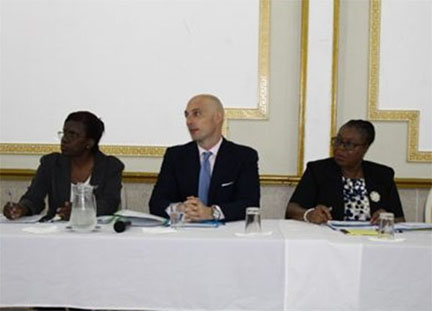The Ministry of Education in collaboration with the United Nations Children’s Fund (UNICEF) yesterday commissioned a study into Out-of-School Children (OOSC) and one speaker cited the 14% figure at the secondary level.
Speaking at the two-day workshop held at the Regency Suites, GINA said the Education Ministry’s Permanent Secretary, Delma Nedd said that the “unacceptable drop-out rate”, unqualified teachers, especially in the hinterland and riverine areas, and overall low performance of boys are the major concerns of the Ministry.
“Currently the country is struggling with data on the causes of drop out and out-of- school children at both the national and sub-regional levels.

This study will set out to correct these issues and bottlenecks caused by the lack of data on out-of-school children, as well as accelerate efforts towards improving the quality and consistency of reliable data collected through the regional administration,” Nedd said.
She said that the study is part of the Government’s efforts to tackle the growing number of dropouts and out-of-school children across the country.
GINA said that it is estimated that about 16 percent of the projected age appropriate population is out of pre-primary school, and although there are less primary school-aged children out of the system, there is a need to address the 14 percent or more that is out of school at the secondary level.
GINA added that some children who are enrolled in the system struggle with the consequences of an age gap.
It said that a 2010 survey shows that more than 600 boys and girls were over age at age 7 with the figure rising to 4, 300 by age 14.
Nedd told the workshop that a number of factors have contributed to children not attending school including that they are from single-parent families or poor families, they are working children or children with disabilities and children living in rural and remote areas.
It is proven that children living in these circumstances do not complete school, she asserted.
The Permanent Secretary said that the Ministry intends to formulate and implement appropriate policies to reduce the number of children out of school.
“This issue is of high priority for the Government,” she stated.
This process, Nedd said, has already started with the implementation of the ‘Five Bs’ programme (books, bicycles, boats, boots and breakfast) and it is anticipated that by September 2016 the enrollment rate will increase.





